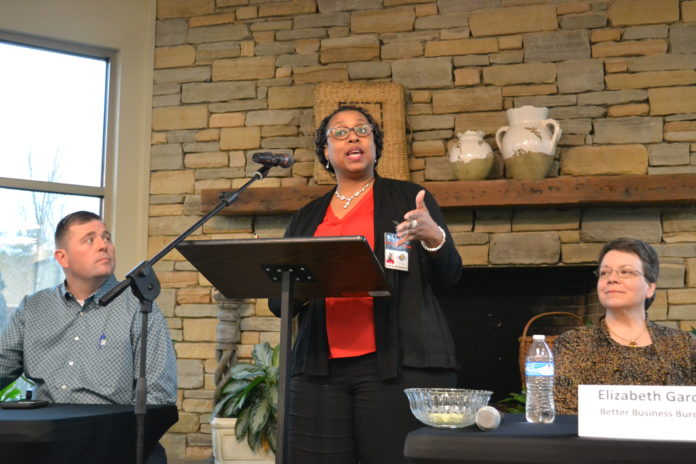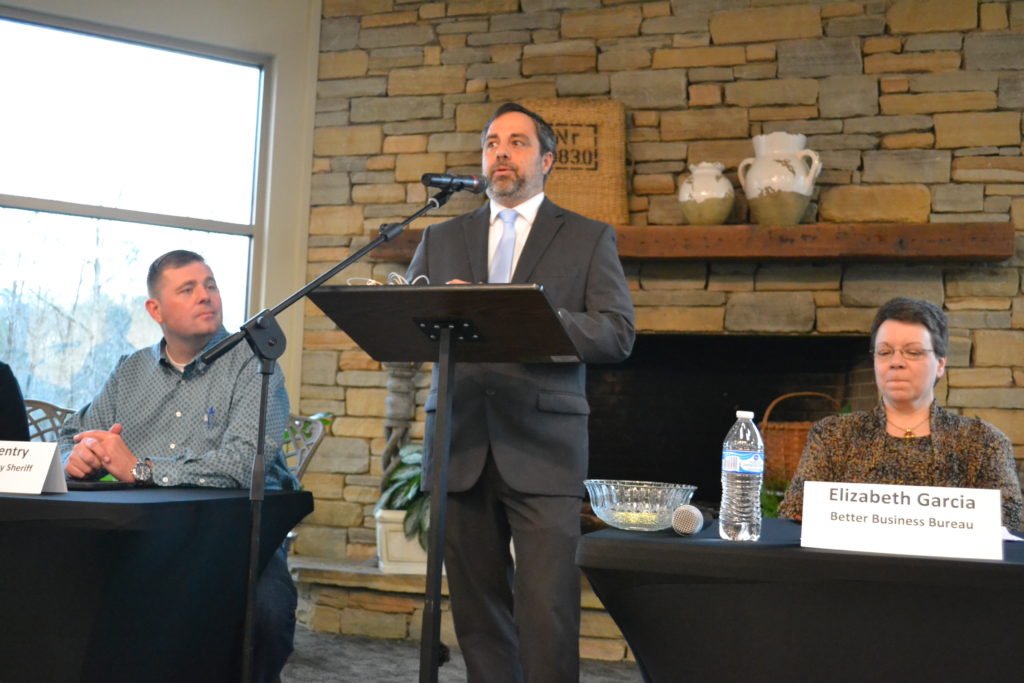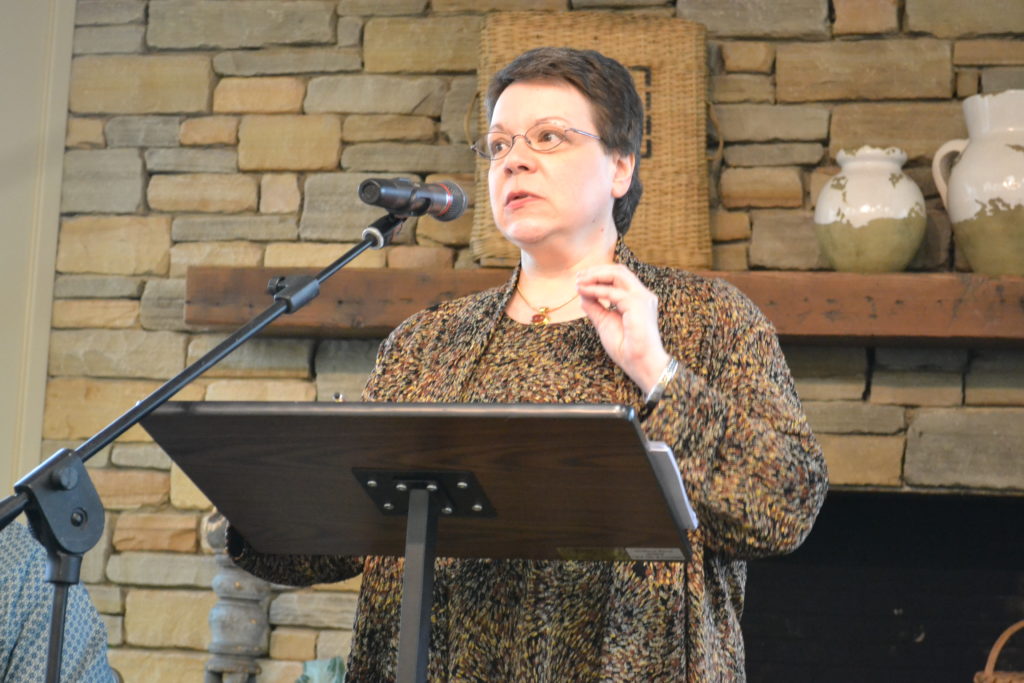
CULLMAN, Ala. – Friday morning yielded educational and useful information, when a free financial and health care fraud prevention seminar, sponsored by the Better Business Bureau (BBB), North Central Alabama Regional Council of Governments (NARCOG), Investor Protection Trust and Alabama’s Senior Medicare Patrol took place at Northbrook Baptist Church in Cullman.
The seminar featured a panel of four local experts including SMP State Director Lani Richardson, Cullman County Sheriff Matt Gentry, the BBB’s Elizabeth Garcia and Alabama Securities Commission’s (ASC) Nick Vonderau.
Said Vonderau “If it sounds too good to be true, it sounds like red a flag.”
He advised attendees to contact local law enforcement or the ASC if they suspect they are being scammed.
“When people hear ‘securities,’ they typically think security guards; that’s not necessarily the case. A security is just another word for investment, so if somebody comes up to you and they offer you investment advice for a fee, or an investment opportunity and you give them money and you don’t have to do anything with it and they go away and do their magic and give you more money later on, that person has to be licensed and their products have to be registered in the State of Alabama. The best way to check to make sure it’s not a fraud is to give the ASC a call at 1-800-222-1253.”
Garcia addressed identity theft and how it can result from falling victim to financial and health care fraud. She said being a victim of a scam makes you more at risk for identity theft.
If you’ve fallen victim to a scam, she said:
- Notify law enforcement, your banking and credit companies and major credit reporting agencies.
- Go over your credit report “with a fine-toothed comb” to try and find any suspicious accounts that could have been opened.
- Keep all records of your case from filing with local law enforcement, as documentation may be needed by credit card companies or banks to prove innocence.
- If you receive letters or documentation from the false accounts opened, keep them.
Garcia said child identity theft is becoming just as prevalent as adult identity theft. She said you can do a quick credit report check to see if any accounts have been opened with your child’s name or Social Security number.
“Be cautious of what information you give out to others,” she said. “Trust, but verify.”
Gentry touched the various scams to which one can fall victim, saying scammers can reach you by social media, the internet, over the phone and in-person by coming to your door.
“Protect your identity,” he warned. “Do not every give out your information over the phone.”
For the potential in-person interaction, Gentry said, “They’re trying to get into your house (to see what they can steal). Do not let them in your house. If they’re asking for help, call us and notify them you called the sheriff’s office, then you’ll see how quick they’ll run off.”
Richardson focused more on Medicare and health care fraud. According to her, in 2017, $60 billion was lost from the Medicare trust fund due to Medicare fraud.
“Protect your Social Security number and Medicare number,” said Richardson. “Detect any fraud by going through your Medical Summary Notice (MSN) to see any suspicious bills for services you didn’t receive. Keep a medical calendar to take down what treatment or what services you received to compare to your MSN to continue a watch for suspicious activity.”
Richardson said common medical scams include:
- Scammers will try to sell you durable medical equipment (braces, canes, walkers, CPAP machines, etc.) on the claim, “You need it because you have this issue.” Richardson said, “Everything you’ll need will go through your doctor.”
- Genetic testing- So-called “legitimate” lab workers will swab your cheek or take a sample and then send you a ridiculous bill. Richardson shared an example of one man getting his cheek swabbed in the lobby of a Piggly Wiggly and then receiving a bill on his MSN for $16,000. She said the SMP is still trying to dispute this charge.
- Scams aimed to obtain Medicare numbers. She noted, “They’ll do anything they can to get your information.”
For more information, visit www.smpresource.org/Locator/AL.aspx.
Copyright 2020 Humble Roots, LLC. All Rights Reserved.






















